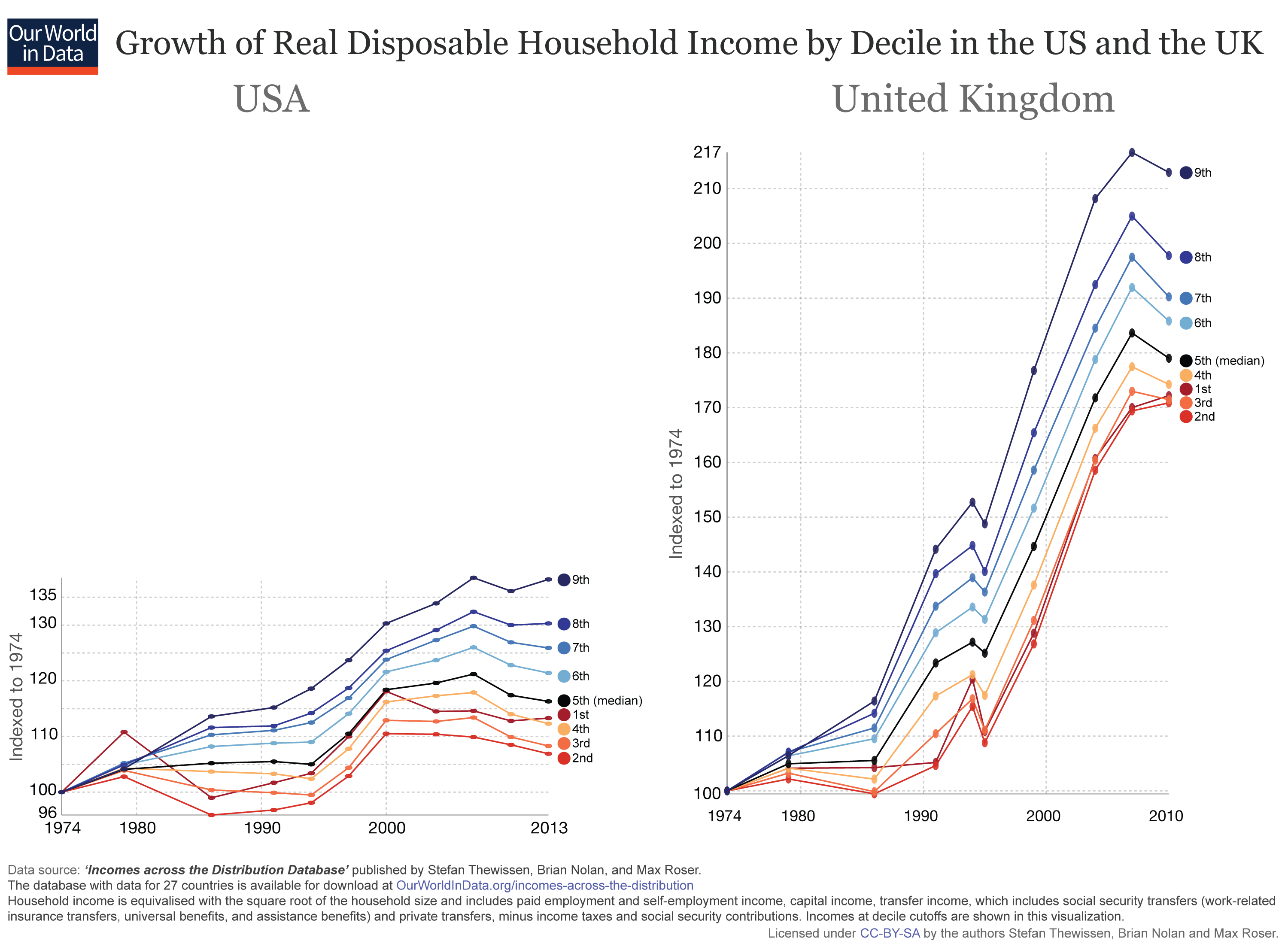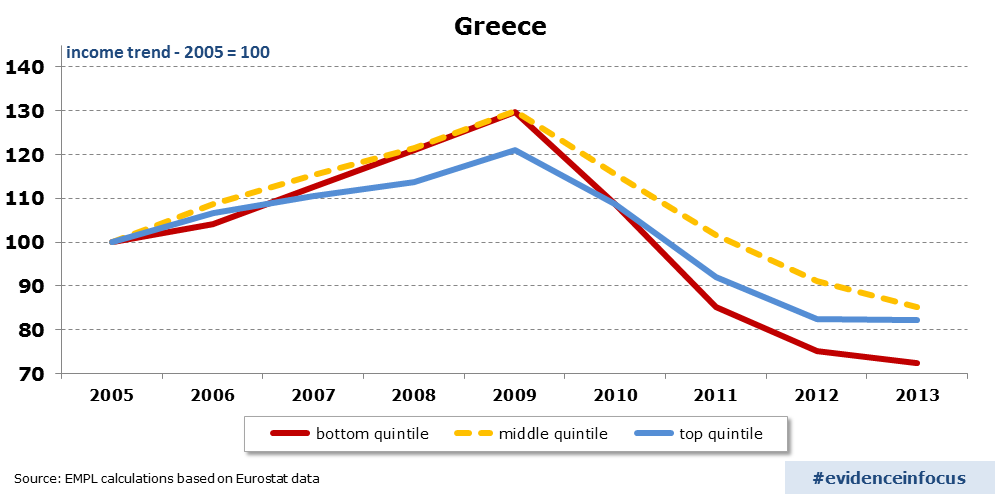The American dream just moved on to China for now. The way they talk about mobility is just comparing the amount of people who make more than their parents which is probably a good way to do it. But once you reach a certain level of income, say 75,000 in a place where that buys you a solid place in the middle class, why is it not the American dream for your kids to continue to live in that way? They still have the middle class life.
This is an argument against that. The US is growing, we just aren't getting a chunk of it because it's all collected at the top. However, distributing current GDP growth more equally across income groups as in the 1940 birth cohort would reverse more than 70% of the decline in mobility. These results imply that reviving the “American dream” of high rates of absolute mobility would require economic growth that is shared more broadly across the income distribution.
Who's we? Americans? More people are making money all over the world today and Americans already have it much better than most in almost every way. I don't want to go back. American median income is 51k. That puts us in the global 1%. Why would I argue against that just because some people have a lot more?
Poke around. Your figure, which I don't dispute, is $980 a week, or $24.51 an hour. zoom around and find the places where the living wage is appreciably below that. Here's the calcs, by the way. What it tells you is that pretty much nation-wide, median income is within a couple bucks an hour of living wage for a single earner. Not a lot of savings possible, not a lot of opportunity to get ahead, buy a house, save for retirement. Median living wage for the United States is $15.84 an hour so, the difference between median wage and living wage is around $19k a year. We can dicker at the margins but that's about 20 grand, give or take, between subsistence and success. How fast do you think a family can burn through $20k if they want to have a little fun or go on vacation or get sick? Then there's this: Really, we're all busting our asses to get back to the Clinton era. It's the sort of reality that makes the proletariat resentful.
FRED goes to '84. A quick perusal found Census Bureau going back to '67. https://upload.wikimedia.org/wikipedia/commons/5/5d/US_real_median_household_income_1967_-_2014.PNG Source is here, pp 5. EDIT: it's an interesting report. Their data claims that real wages for men have been declining since 1974.
I guess my question there is, what if there is a logarithmic curve to real median income growth for a given mix of workers? What if, instead of continuing to rise without limit, the curves tapers as a market is willing to sustain only that level of pay for work, regardless of efficiency gains and productivity. Maybe we hit that limit in 1998 and now we're going to be stuck there until a major change. In that case, it would make sense that real income growth stalls and swings around that set limit until something else changes. We would see a huge gain in highest-level earners as they pocket the difference in profits, but also in an effort to compete we would see workers expand into other countries which have not reached that limit. I don't argue that there are more billionaires, or that income growth for a ton of people has stopped within a set of countries, I'm just curious to see if that's a natural phenomenon now that the 'easy' income growth of getting into a new level of professional economy has already happened. Maybe the next change is automization which throws everything for a way bigger loop. Or maybe it's just that China becomes an economy on par with the West and makes a huge difference in consumption and supply of money in a wider middle class.
My counter-question would be, "what is the significance of the median?" Certainly, if you were going to pick one statistic it's a good one to pick but if you're trying to analyze the whole system and its desirability to all participants, you might want to look at income deciles, for example: Median income has stagnated for the median since 2000. It's stagnated for the 60th and 70th deciles, too. 80th and 90th? Things are bright. 20th, 30th, 40th? things are in the shit. But take a close look at 10th percentile - straight poverty level - Bush and Clinton were awesome for the poor and it's been pretty much shit ever since. Put another way, "maybe tax and social policy hamstrung the lower and middle class in 1998 at the expense of the upper class." This is not a natural system - it is the output of a synthetic system whose inputs are tax and employment policy. It's not a problem Sweden has: It's a problem Greece has in spades: So in a sense yes, the numbers reflect the inputs. But in a sense no, those numbers are not "natural."I guess my question there is, what if there is a logarithmic curve to real median income growth for a given mix of workers?

Maybe we hit that limit in 1998 and now we're going to be stuck there until a major change.


Yes, and the west in general at the moment. That's a massive excuse. People in the US should be better off today than they were yesterday, even if they were better off than everyone else. Our wealth in the US is growing just as it always has, but it is being siphoned off of us by those who are gaming our systems for their benefit. Our gain of wealth from those who are at the top is not stealing from the Chinese. The wealth is here in the US already, it's not being taken from China. I'm not saying we move jobs here, I'm saying we change taxes and other systems that allow wealth to accumulate as it has. We can all benefit from global trade. We should all benefit from global trade. Even if it is the wealthy and the Chinese profiting off the American people at our expense because "well, we have it good already", than we can, we should, and we will, shut it down. Populism is on the rise for good reason.Who's we? Americans?
More people are making money all over the world today and Americans already have it much better than most in almost every way. I don't want to go back.